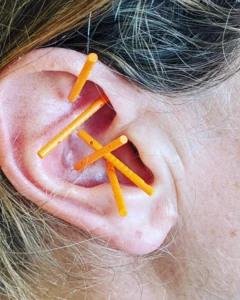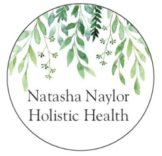NADA Ear Acupuncture
Nada Ear Acupuncture protocol can be very effective for those affected by stress, anxiety and depression, insomnia, mental health issues, drug and alcohol dependency.
Many people successfully use ear acupuncture to stop or reduce their use of medications, drugs, alcohol or tobacco and to manage the cravings and stress associated with their withdrawal.
People find they benefit from regular attendance; reporting feeling less stressed and anxious as well as noting improvements in their energy and mood, better sleeping patterns and a more positive sense of well-being.
The protocol has very little contraindications; meaning that most people can safely have regular treatments including pregnant people and those with learning + physical disabilities, those undergoing medical treatments and other complimentary therapies.

Benefits from Ear Acupuncture:
- Increase calmness,
- Promote better sleep
- Reduction in agitation and stress
- Helps with detoxification processes
- Reduce mood swings
- Decrease in the experience of challenging side effects from medications, chemotherapy and other medical treatments.
You will always have the choice to enjoy the healing sessions either in silence, with gentle background music or with a guided meditation/ relaxation to support a deeper healing.
